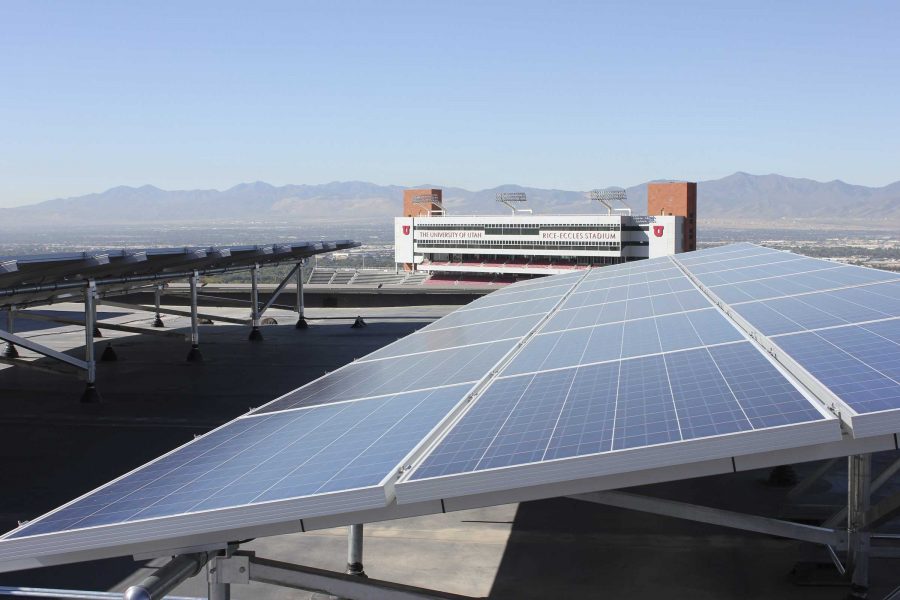The University of Utah announced an agreement to decrease its carbon emissions by 25 percent, making a stride toward its goal of zero carbon emissions by the year 2050.
The reduction comes through a move to source 50 percent of the university’s electricity from solar and geothermal energy sources, which are both carbon-free. The new focus on renewable energy makes the U one of the most sustainable schools in the country. The United States Environmental Protection Agency’s Green Power Partnership rankings rate the agreement as the largest long-term green power contract of any American university.
Over the next 25 years, 20 megawatts of geothermal energy and 10 megawatts of solar energy will be provided to the U by Berkshire Hathaway Energy Renewables (BHER) and local company Cyrq Energy. Rocky Mountain Power (RMP) will facilitate the purchase and delivery of the power to the U with one of its green tariffs, which allows RMP’s customers to access renewable energy.
“Cyrq is honored to partner with Berkshire Hathaway Energy, Rocky Mountain Power and the U on this exceptional project, and we look forward to supporting the university’s renewable energy goals,” said Cyrq CEO Nick Goodman in a recent U press release.
The switch away from nonrenewable energy sources has been praised by environmentalists and renewable-proponents, but this move has not left the general public without reservations. The potential added cost of relying on renewables rather than traditional electricity sources has brought up concerns for many students.
“I think it’s a good idea and that we really do need to go more green,” said Aleya Mason, a student in pre-medical lab science. “However, I just don’t think it’s worth the potential tuition or tax hike. They are already raising tuition yearly, and I don’t want it to go up more.”
Proponents argue that higher costs are worth the positive benefits that come from renewable energy. Not only will it decrease the carbon output on the part of the university and improve air quality, advocates say, but it will also simply be beneficial to the environment as a whole.
“[There is no expected] fee increase or cost to students or taxpayers,” said Deputy Chief Sustainability Officer at the U, Myron Willson. “Because these are 25 year contracts, we are able to lock in the cost of this clean and renewable energy. The cost over the life of the contract will be the same, or slightly less than electricity purchased through the grid — much less if there is ever a mandate for our utility to provide renewable energy to the grid.”
The change is expected to go into full effect in either late 2018 or early 2019. The U plans to continue other measures in pursuit of carbon neutrality including pushes for efficiency, as well as rooftop and parking canopy solar power for on-site energy production. Willson added that the Sustainability Office has a full plan to decrease the U’s impact on the local airshed which also includes efforts to increase sustainable transportation.
The Sustainability Office hopes that the U’s moves toward being more environmentally friendly will inspire other universities as well as businesses and organizations in Utah.
“Not only are geothermal and solar energy key components in the diverse array of energy sources in our state, the university has substantial and continuing research efforts in both areas,” said Chief Sustainability Officer Amy Wildermuth in a press release. “To be part of a project like this demonstrates the practicality and affordability of these carbon-free energy sources, which we hope can serve as a model for others.”
c.macdonald@dailyutahchronicle.com



Nina • Oct 24, 2017 at 11:00 am
So proud! Go green and lock in that cost benefit long term. Worthy of that pack 12 status!